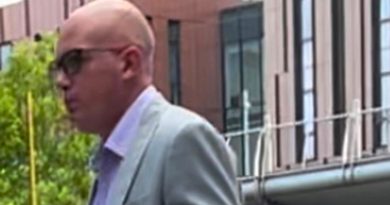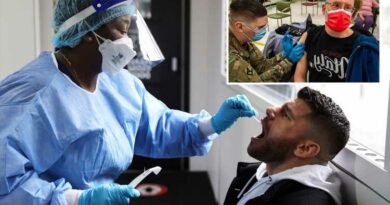Eli Epiha trial: After killing constable, defendant said only he ‘f***ed up’ — witness
In the hours after shooting constables Matthew Hunt and David Goldfinch — killing Hunt — Eli Epiha seemed calm, making only one startling but vague admission, an associate of his said at his trial.
“I just recall him saying he f***ed up,” Shane Conza recalled the defendant saying as Conza drove him north that June 2020 afternoon, away from the West Auckland neighbourhood where the officers were gunned down.
“Maybe foolishly, I didn’t ask” what the Epiha was referring to, Conza continued, maintaining that he knew nothing of the shootings at the time. “Sometimes in situations you get a feeling.”
Epiha, 25, pleaded guilty last week to Hunt’s murder — although he maintains it the was the result of recklessness instead of murderous intent. His trial for attempted murder of Constable Goldfinch began this week at the High Court in Auckland.
Goldfinch testified yesterday that Epiha crashed his car that morning after fleeing the officers, then emerged from the car with a military-style semi-automatic rifle. The officer, who was hit by four bullets, said he showed Epiha he was unarmed and tried to reason with the stranger, telling him to walk away. Epiha didn’t say a word in response, instead seeming to make a conscious decision to kill the officer instead, Goldfinch said.
Epiha was filmed leaving the residential street with co-defendant Natalie Bracken, who faces a charge of being an accessory after the fact to murder.
He later showed up at a rural Taupaki property where Conza lived with his partner and child. Things were uneasy from the start, Conza said, explaining that his partner was arguing with him because Epiha showed up with a woman they didn’t know.
“She definitely didn’t want to be there,” Conza said of the woman, adding that he didn’t particularly want either of the arrivals at his home either.
The witness said the woman left on her own in the car they arrived in and he agreed to give Epiha a ride, first putting a large item wrapped in cloth — he later realised it was an assault rifle — in his own car. He often drove for Epiha, who he had known for about six years, so there was nothing particularly unusual about that, he said.
“Eli was pretty calm,” he recalled. “He was obviously concerned he had upset me because I got in a fight with my partner.”
As the two drove for nearly an hour they spoke about various things but never did Epiha mention shooting police officers, Conza said, adding that he also had heard nothing about the shootings in the news.
But Conza deduced enough from the situation that he suspected he had been put in an uncomfortable situation, so at some point he pulled over next to a forested area and took the wrapped item out of the boot — covering it in pinecones off the side of the highway.
“It was a Kalashnikov AK-47,” he told the jury. “I have no idea where it came from other than the boot of the Mazda [that Epiha and the woman arrived in].”
Still, he said, he decided not to ask why Epiha had brought the gun.
During that same drive, the pair were pulled over by police.
“He said to be cool,” Conza said, explaining that the defendant asked him to snap Epiha’s cellphone, which he declined to do. Epiha then gave police a false name, he said.
It wasn’t until about 30 minutes of sitting handcuffed on the side of the road that police said he was a person of interest in the shootings of two police officers and he realised what was going on, Conza said. It was after that that he “processed the information” and decided to mention the gun he had earlier dumped on the side of the road. He helped them find the weapon.
Under cross-examination from Epiha’s lawyers, Conza acknowledged Epiha usually had a calm demeanour.
Bracken’s attorneys, meanwhile, suggested it should be Conza charged with accessory after the fact to murder.
“If you did know about the death of a police officer … you’d accept your actions were being done to help him avoid arrest and prosecution?” lawyer Adam Couchman asked, before being more blunt in his questioning: “You knew at that time that your mate had been involved in a murder.”
“No,” Conza replied.
The witness also took issue with Couchman’s suggestion he was helping Epiha to hide the guns left on the side of the road.
“You use the word stash, but it was more like to get it out of my vehicle, so the pretense is incorrect,” he said.
Prosecutors have now called to the witness stand the officer who pulled over the pair as the trial continues.
Source: Read Full Article

/cloudfront-ap-southeast-2.images.arcpublishing.com/nzme/ZFI6GWUP6YTTIEL4KUQHAXLHSE.jpg)
/cloudfront-ap-southeast-2.images.arcpublishing.com/nzme/O3KNR722KBUJVV232F3OTU47OI.jpg)
/cloudfront-ap-southeast-2.images.arcpublishing.com/nzme/4FROPTROQYBPVAIR74EYDARVNU.jpg)

